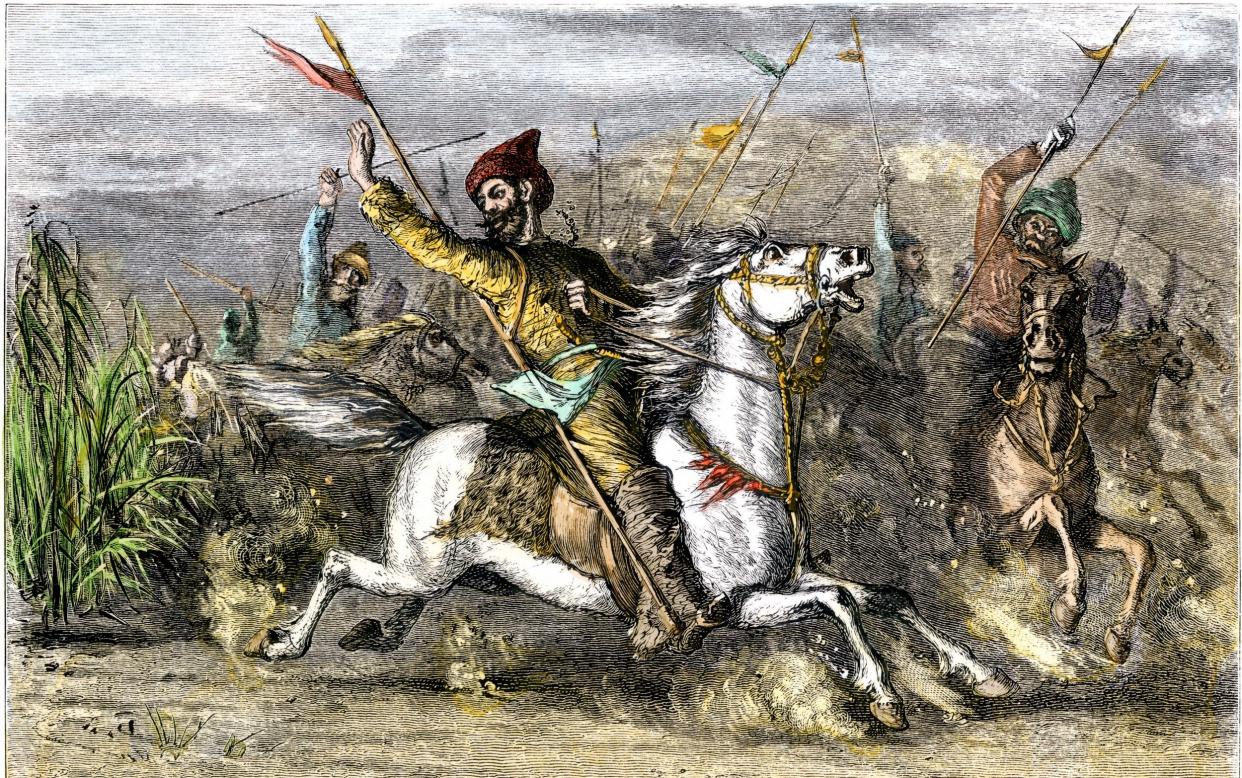Genghis Khan ‘a Blairite before his time’

- Oops!Something went wrong.Please try again later.
Genghis Khan was more of a culturally sensitive “Blairite” than a “mass rapist”, according to a leading historian.
The first khagan of the Mongol Empire which spanned from the Pacific Ocean to modern-day Hungary is often associated with brutality and the slaughter of millions.
Yet Peter Frankopan, professor of global history at Worcester College, Oxford, has suggested that Khan has been maligned and was far more pluralistic than we thought.
Speaking at the Chalke Valley History Festival, near Salisbury, about his new book The Earth Transformed, he said: “Exciting though [he] might have been as a ruler, he has more of a kind of Blairite tendency to him than the mass rapist that we tend to think of.”
This was partly because of how history has been written by those he conquered, Prof Frankopan said. In fact, Khan and his followers showed tolerance and respect for other religions.
“They would meet Jews and Christians and Muslims who’d say: ‘Are we going to be OK practising our own religion and belief systems?’” said Prof Frankopan.
“And the Mongol high command would say, yeah, no problem buddy.”
He added jokingly: “So very inclusive, in fact, there were a couple of places where everybody was murdered and butchered, pour encourager les autres.”
Declining empire
Prof Frankopan also said countries with empires seemed to go through a period of decline when they ended. He said this may have been what Britain experienced over the last century.
He said there are “still a lot of things to be proud about, a lot of things to be happy about in the future”, but questioned Theresa May’s first press conference as prime minister when she said that Britain’s best days were ahead.
“Better than Trafalgar?” he asked.
Prof Frankopan also said the Turkish power base was greatly damaged through “incredibly harsh winters” in the 620s AD, and that three years later, a Chinese town ruler used this as a means of seizing flatlands formerly controlled by Turkey.
He said this event was a “dummy runner for what did happen about 700 years later, when the Mongols did build an empire that reached from the Pacific coast, right the way to central Hungary”.

